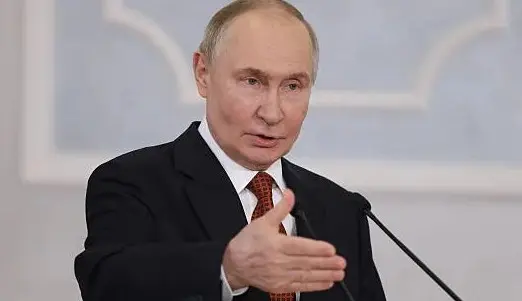
Russian President Vladimir Putin has announced Moscow’s willingness to engage in a third round of peace talks with Ukraine
Putin’s Proposal: A New Chapter of Peace Talks or Familiar Script?
On June 27, 2025, Russian President Vladimir Putin announced that Moscow is prepared to participate in a third round of peace talks with Ukraine. Speaking from Minsk, Belarus, Putin suggested Istanbul as a potential venue, praising Türkiye’s continued role as a neutral facilitator.
“We are ready for this next round. We just need to coordinate the time and place,” Putin stated, adding that both sides’ negotiation teams remain in contact.
This announcement follows two earlier rounds of talks on May 16 and June 2 also held in Istanbul. While those meetings led to significant prisoner exchanges, they failed to produce a lasting ceasefire. Ukraine has consistently pushed for a 30-day ceasefire, while Russia has only offered short-term truces in limited areas to retrieve fallen soldiers.
Putin acknowledged that the peace proposals from both sides remain “absolutely opposite,” but emphasized that dialogue is essential to bridge the divide. He also confirmed Russia’s willingness to return the remains of 3,000 Ukrainian soldiers as a humanitarian gesture.
Global Stakes: Diplomacy, Distrust, and the Shadow of War
The announcement has triggered a wave of cautious reactions from international observers. While some view it as a potential breakthrough, others remain sceptical, citing Russia’s history of using negotiations to stall or deflect international pressure.
Key developments:
- Türkiye’s mediation: President Recep Tayyip Erdoğan has reaffirmed his country’s commitment to hosting the next round of talks. Ankara remains one of the few nations with open channels to both Kyiv and Moscow.
- Zelensky’s openness: Ukrainian President Volodymyr Zelensky has expressed willingness to meet Putin directly, possibly with U.S. President Donald Trump also at the table. However, Putin has yet to confirm his personal participation.
- U.S. involvement: Trump, who recently met Zelensky at the NATO summit, has not ruled out joining the talks. A trilateral meeting could shift the dynamics significantly.
Despite these diplomatic overtures, the battlefield tells a different story. Russia continues to launch drone and missile attacks across Ukraine, while Kyiv has intensified its counteroffensive using domestically developed interceptor drones. The war, now in its fourth year, shows no signs of slowing.
Reading Between the Lines: Real Peace or Tactical Pause?
Analysts are divided on the sincerity of Putin’s offer. Some believe it reflects genuine war fatigue and a desire to stabilize Russia’s international standing. Others argue it’s a strategic move to buy time, regroup militarily, or influence global opinion.
Possible motivations behind Russia’s move:
- War weariness: Mounting casualties, economic strain, and domestic unrest may be pushing Moscow toward negotiations.
- International optics: By appearing open to peace, Russia could deflect criticism and sanctions while continuing military operations.
- Divide and distract: Talks may be used to sow discord among Ukraine’s allies or delay further Western military aid.
Ukraine, for its part, remains wary. Officials insist that any meaningful negotiation must include a full ceasefire, withdrawal of Russian troops, and restoration of territorial integrity. Without these conditions, Kyiv fears the talks could become another diplomatic dead end.
Stay updated with the latest news on Rapido Updates. Keep yourself updated with The World, India News, Entertainment, Market, Automobile, Gadgets, Sports, and many more